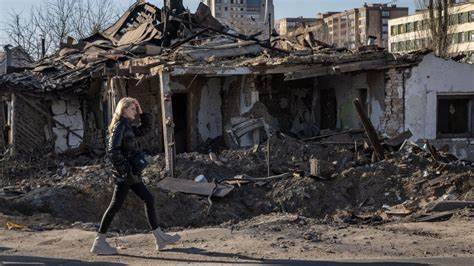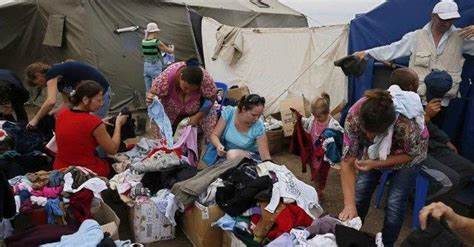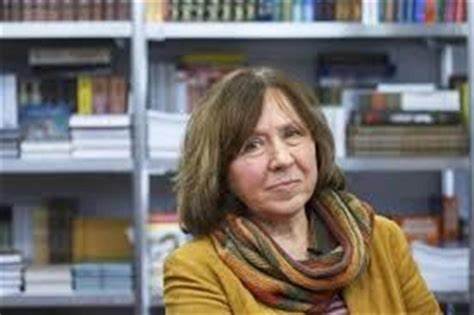Articolo di Marina Agostinacchio
Svetlana, “donna-orecchio”.
Conosciamo tutti Svjatlana Aljaksandraŭna Aleksievič, giornalista e scrittrice bielorussa nata in Ucraina, da madre ucraina e padre bielorusso; sappiamo che le è stato conferito nel 2015 il Premio Nobel per la letteratura “per la sua scrittura polifonica, un monumento alla sofferenza e al coraggio nel nostro tempo” .
Nel suo ultimo libro” Una battaglia persa” – Adelphi, 2022, Svetlana narra gli orrori della guerra in Ucraina attraverso le voci delle donne che di quella guerra portano i segni di un conflitto senza fine.
Svetlana si è definita “donna-orecchio”, colei che raccoglie le testimonianze delle donne ucraine perché è dalle loro voci che la storia legittima il diritto di essere ascoltata e accolta per potere trarne un giudizio e scuotere quanti ancora sostengono che questa maledetta guerra era necessaria.
Attraverso i racconti femminili scorrono davanti ai nostri occhi immagini di donne che partoriscono mentre si adoperano per trovare luoghi che le riparino dai bombardamenti, o immagini di madri disperate, a volte coi figli in braccio, o di bambine rimaste orfane.
Penso a Svetlana attenta documentatrice di racconti disposti in trame, intrecciate di emozioni e verità. Solo la voce della gente comune, (le testimoni oculari), poteva esprimere con tanto dolore e senza indugio, quella parte di sé, spirituale e vitale, che appartiene alla vita di tutti i giorni: “Il quotidiano dell’anima”. Penso ai suoni delle parole di queste spettatrici di delitti; immagino di essere anch’io donna-orecchio e di cogliere di questi racconti anche i segni impercettibili dei fonemi emessi da intervalli di respiro profondo, suoni sciolti in vibrazioni vocaliche che echeggiano dalla faringe alla bocca al naso, a ritmo ora concitato, ora prolungato… Prima che ogni frase si definisca distesa in pensiero, secondo i canoni del logos, questi suoni, proto-forma di un pensiero, assumono involontariamente il compito di messaggeri di evidenza storica, di disorientamento, di spavento, di atrocità.
Parlando dei suoi ascolti, dice Svetlana: «Mi trasformo sempre più in un solo grande orecchio rivolto senza sosta verso l’altro. Per leggere la sua voce».
In un’intervista al giornalista Ezio Mauro, Svetlana parla delle sue origini, per metà ucraine e per metà russe. Lei nata in Ucraina, ma vissuta in Bielorussia. Dice: “Quando ho ricevuto il premio Nobel dissi che avevo due case, perfino tre: la Bielorussia, l’Ucraina e la cultura russa. Ma erano tempi completamente diversi, e tutti noi eravamo sotto l’influsso grandioso della cultura russa, sentivamo tutto il suo incanto, mentre oggi sembra di essere in un altro mondo. Dobbiamo domandarci, e domandare all’intera élite russa, perché la cultura del Paese è divenuta impotente, perché non aiuta in questa situazione tragica, perché le persone non si rivolgono alla parola della cultura, e non la ascoltano, e invece ascoltano soltanto la televisione”.
Ma allora, come ci deve sentire privati di un’identità, di un’anima russa, quella grande cultura di cui quel popolo andava fiero se poi si ascoltano testimonianze dalla voce delle donne, come questa, riferita ai soldati russi che parlano tra loro, o al telefono con i familiari: ‘Noi qui stiamo rubando, stiamo facendo sciacallaggio. Io non ho con me un borsone, ma qualcosa sono riuscito a prendere. Per esempio, ‘argento non fresco’. ‘Argento non fresco”? Che vuoi dire?’ chiede lei. ‘È ad esempio quello che leviamo ai morti. Ma tu riesci a lavorare con l’argento vecchio?’. Risposta: ‘Tu prendi, prendi tutto quel che trovi…’.
Ora Svetlana sta scrivendo un libro sulla situazione in Bielorussia e sulla guerra in Ucraina. Sul senso di questa guerra, tra allontanamento dal mondo, paura, romitaggio, estraneità, ci si può domandare come sia stato possibile smarrire la coscienza di sé.
È compito della letteratura, secondo Svetlana, creare il boato nel cuore degli uomini, attraverso le parole per far sì che l’assuefazione alla guerra non prevalga con l’andare dei giorni sulla propria dimensione umana.
“Come scegliere le parole perché la gente capisca che sono cose terribili?…”
Far prevalere l’uomo sul guerriero non è un segno di debolezza ma un atto di profonda meditazione, di riappropriazione dei valori che contraddistinguono l’essere pensante.
Svetlana, “woman-ear”.
We all know Svjatlana Aljaksandraŭna Aleksievič, a Belarusian journalist and writer born in Ukraine, from a Ukrainian mother and a Belarusian father; we know that she was awarded the 2015 Nobel Prize in Literature “for her polyphonic writing, a monument to suffering and courage in our time.”
In her latest book “A Lost Battle” – Adelphi, 2022, Svetlana narrates the horrors of the war in Ukraine through the voices of women who bear the signs of an endless conflict from that war.
Svetlana defined herself as a “woman-ear”, the one who collects the testimonies of Ukrainian women because it is from their voices that history legitimizes the right to be heard and accepted in order to be able to make a judgment and shake those who still argue that this accursed war was necessary.
Through women’s stories, images of women who give birth while they work to find places that shelter them from bombings, or images of desperate mothers, sometimes with children in their arms, or orphaned girls flow before our eyes.
I think of Svetlana, an attentive documenter of stories arranged in plots, intertwined with emotions and truths. Only the voice of ordinary people, (the eyewitnesses), could express with so much pain and without delay that part of themselves, spiritual and vital, which belongs to everyday life: “The daily life of the soul”.
I think of the sounds of the words of these crime bystanders; I imagine that I too am a woman-ear and that I also grasp the imperceptible signs of the phonemes emitted by intervals of deep breathing from these stories, sounds dissolved in vocal vibrations that echo from the pharynx to the mouth to the nose, at a now excited, now prolonged rhythm… Before each sentence is defined as extended in thought, according to the canons of logos, these sounds, proto-form of a thought, involuntarily assume the task of messengers of historical evidence, of disorientation, of fright, of atrocities.
Talking about her listening, Svetlana says: «I turn more and more into one big ear constantly turned towards the other. To read her voice.”
In an interview with journalist Ezio Mauro, Svetlana talks about her half-Ukrainian and half-Russian origins. She was born in Ukraine but lived in Belarus. She says: “When I received the Nobel Prize, I said that I had two homes, even three: Belarus, Ukraine, and Russian culture.
But those were completely different times, and we were all under the great influence of Russian culture, we felt all its charm, while today it seems to be in another world. We must ask ourselves, and ask the entire Russian elite, why the culture of the country has become impotent, why it does not help in this tragic situation, why people do not turn to the word of culture and do not listen to it, and instead only listen to the television.”
But then, how must we feel, deprived of an identity, of a Russian soul, that great culture of which that people was proud if we listen to testimonies from the voice of women, such as this one, referring to Russian soldiers talking to each other, or on the phone with family members: ‘We are stealing here, we are looting. I don’t have a bag with me, but I managed to take something. For example, unfresh silver’. ‘Silver not fresh? What do you mean?’ she asks. ‘It is for example what we raise from the dead. But are you able to work with old silver?’ She replied: ‘You take, take everything you find …’.
Now Svetlana is writing a book about the situation in Belarus and the war in Ukraine. On the meaning of this war, between estrangement from the world, fear, hermitage, and extraneousness, one can wonder how it was possible to lose self-awareness.
It is the task of literature, according to Svetlana, to create a roar in the hearts of men, through words to ensure that the addiction to war does not prevail over the days on one’s human dimension.
“How to choose words for people to understand that they are terrible things?…” Making man prevail over the warrior is not a sign of weakness but an act of profound meditation, of reappropriation of the values that distinguish the thinking being.







